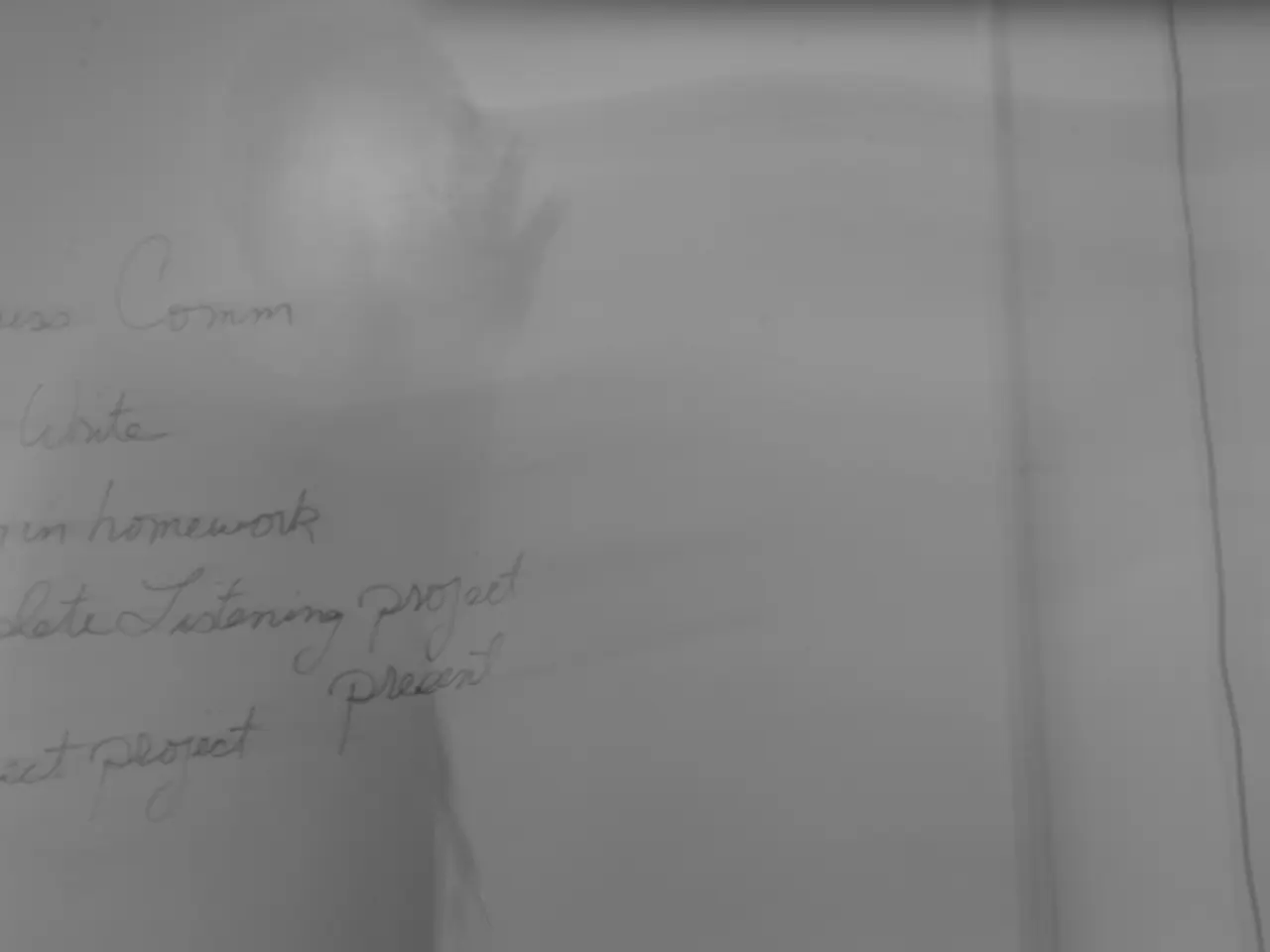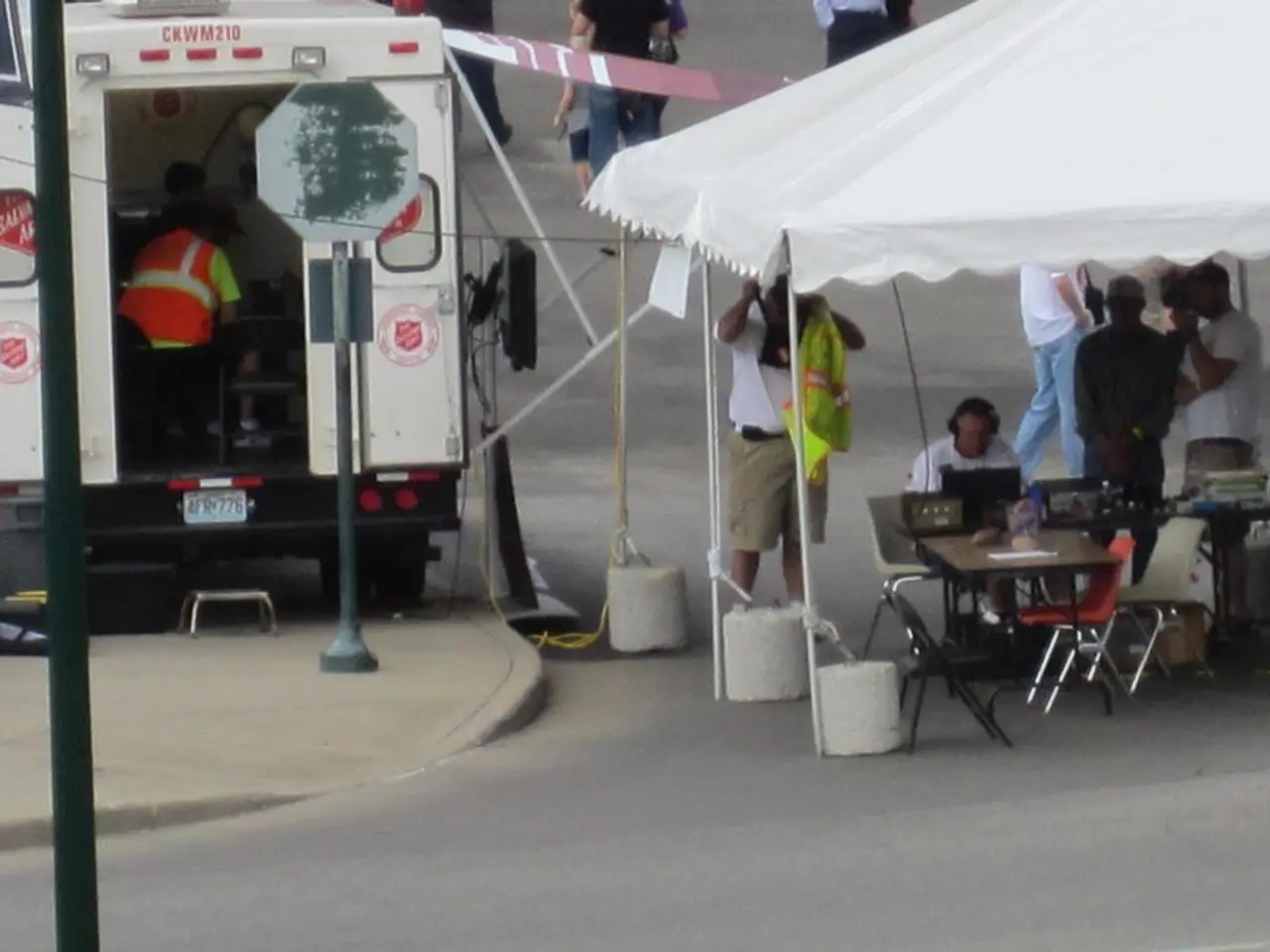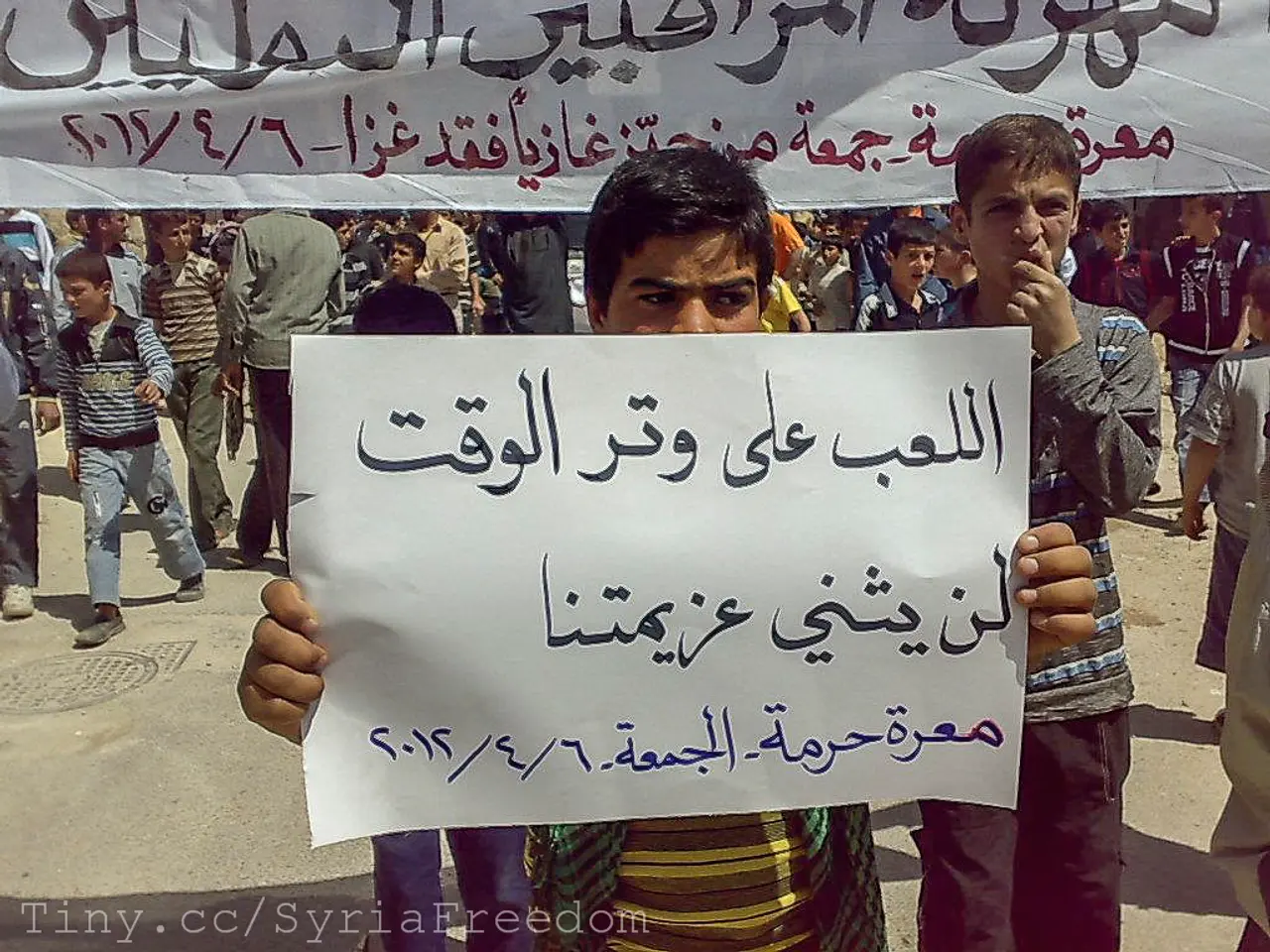Unyielding Chancellor Remains Devoid of Immediate Solutions DespiteHis Lack of Limbs
In a recent interview, Chancellor Friedrich Merz expressed his concerns about the ongoing crisis surrounding the election of judges to the German Constitutional Court. The centre-right CDU/CSU bloc and their centre-left coalition partner, the SPD, have been at odds over the nomination of Frauke Brosius-Gersdorf, an SPD candidate, due to her controversial stances on issues such as abortion and mandatory COVID-19 vaccinations.
Merz is actively engaged in negotiations with US President Donald Trump to avoid the imposition of 30 percent tariffs on EU products from August 1st, which he predicts could overshadow everything and hit the German export industry hard. However, the judges' election crisis remains a significant challenge for his first 100 days in office.
The crisis has already led to the postponement of the vote on the judges' election until September, in the hope that a cooling-off period and further negotiations between the parties will lead to a resolution. The SPD has been leading emergency meetings and negotiations to find a compromise candidate or to address concerns about Brosius-Gersdorf's nomination.
The CDU/CSU withdrew their support at the last moment due to plagiarism allegations against Brosius-Gersdorf, which the coalition must address transparently to restore trust. Alternative candidates for the third judge position are also being considered to avoid a deadlock that could undermine the Constitutional Court's legitimacy and the coalition government's stability.
Coordinated action with other parties, such as the Greens, is also being considered to ensure a consensus approach that maintains the integrity of the court appointments and the coalition government. The Left Party might make their approval of the current Union's judge candidate, Günther Spinner, dependent on approval of Brosius-Gersdorf, adding another layer of complexity to the situation.
Vice-Chancellor and SPD leader Lars Klingbeil has remained quiet, but there is boiling discontent among his comrades after the election fiasco. Merz, on the other hand, has defended his faction leader Jens Spahn, stating that he is the right person for the job.
Despite the ongoing crisis, Merz maintains a calm demeanor during interviews, a stark contrast to his predecessor Olaf Scholz who often showed contempt for annoying questions. The former constitutional judge and CDU Minister President Peter Müller and Federal President Frank-Walter Steinmeier have both stated that the coalition has damaged itself, affecting the authority of parliament.
Merz insists that the failed leadership recognition was due to the tight legislative program of recent weeks and that large parts of the population are barely paying attention to the judges' dispute. However, he acknowledges that the topic is likely to continue to burden his coalition in the coming weeks. The reform of the debt brake, agreed upon in the coalition agreement, is now supposed to come in the first quarter of 2026.
[1] https://www.tagesschau.de/inland/merz-verteidigung-121.html [2] https://www.sueddeutsche.de/politik/merz-verteidigt-spahn-1.5854404 [3] https://www.welt.de/politik/deutschland/plus189905124/Merz-kritisiert-die-CDU-CSU-und-SPD-fuer-das-Scheitern-des-Kanzleramts.html [4] https://www.spiegel.de/politik/deutschland/merz-verteidigt-sich-gegen-kritik-a-662003.html [5] https://www.zeit.de/politik/deutschland/2022-07/merz-verteidigung-kanzler-amt-krisenherde-judikative-krisenherde
- In the midst of negotiations with US President Donald Trump to potentially avoid tariffs on EU products, Chancellor Friedrich Merz faces another political challenge within the European Parliament, as the election of judges to the German Constitutional Court remains contentious.
- The ongoing crisis surrounding the judges' election has led to a series of protests and debates within the European Parliament, with the SPD leading emergency meetings and negotiations to find a compromise candidate or address concerns about the nomination of certain individuals, such as Frauke Brosius-Gersdorf.




